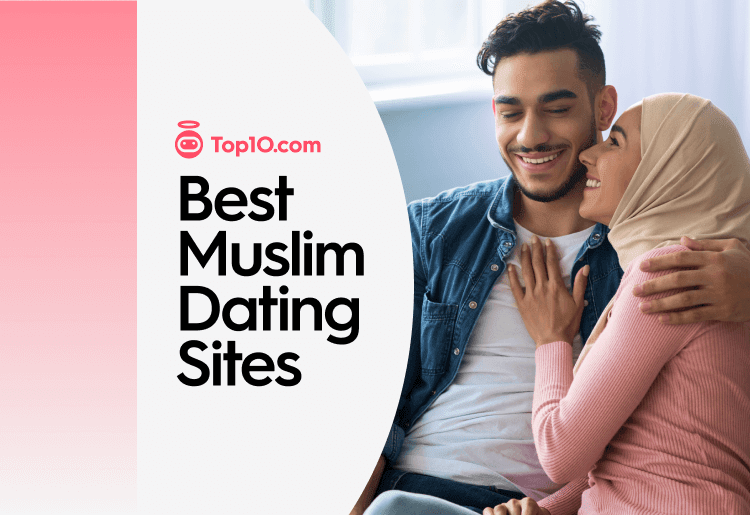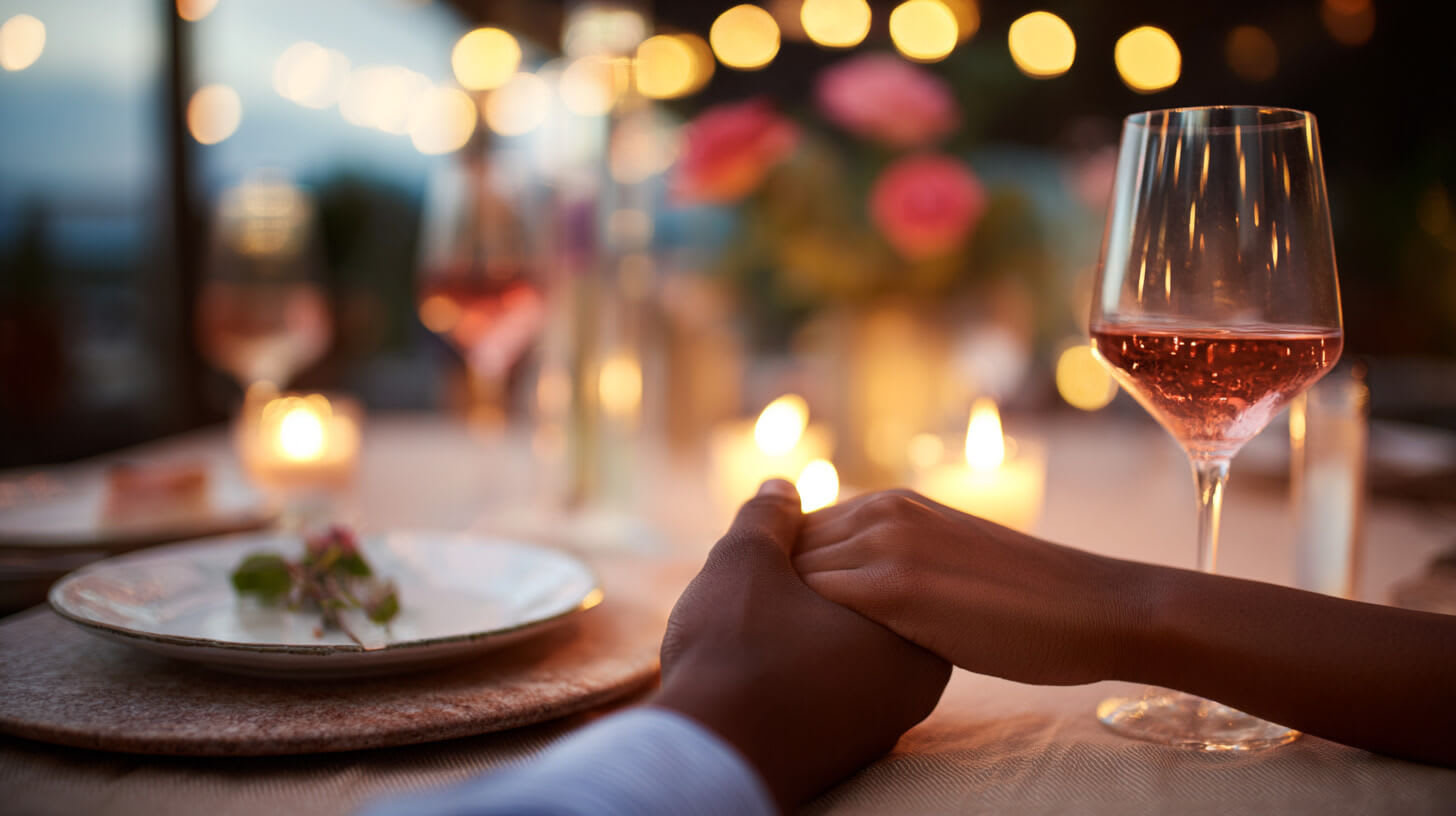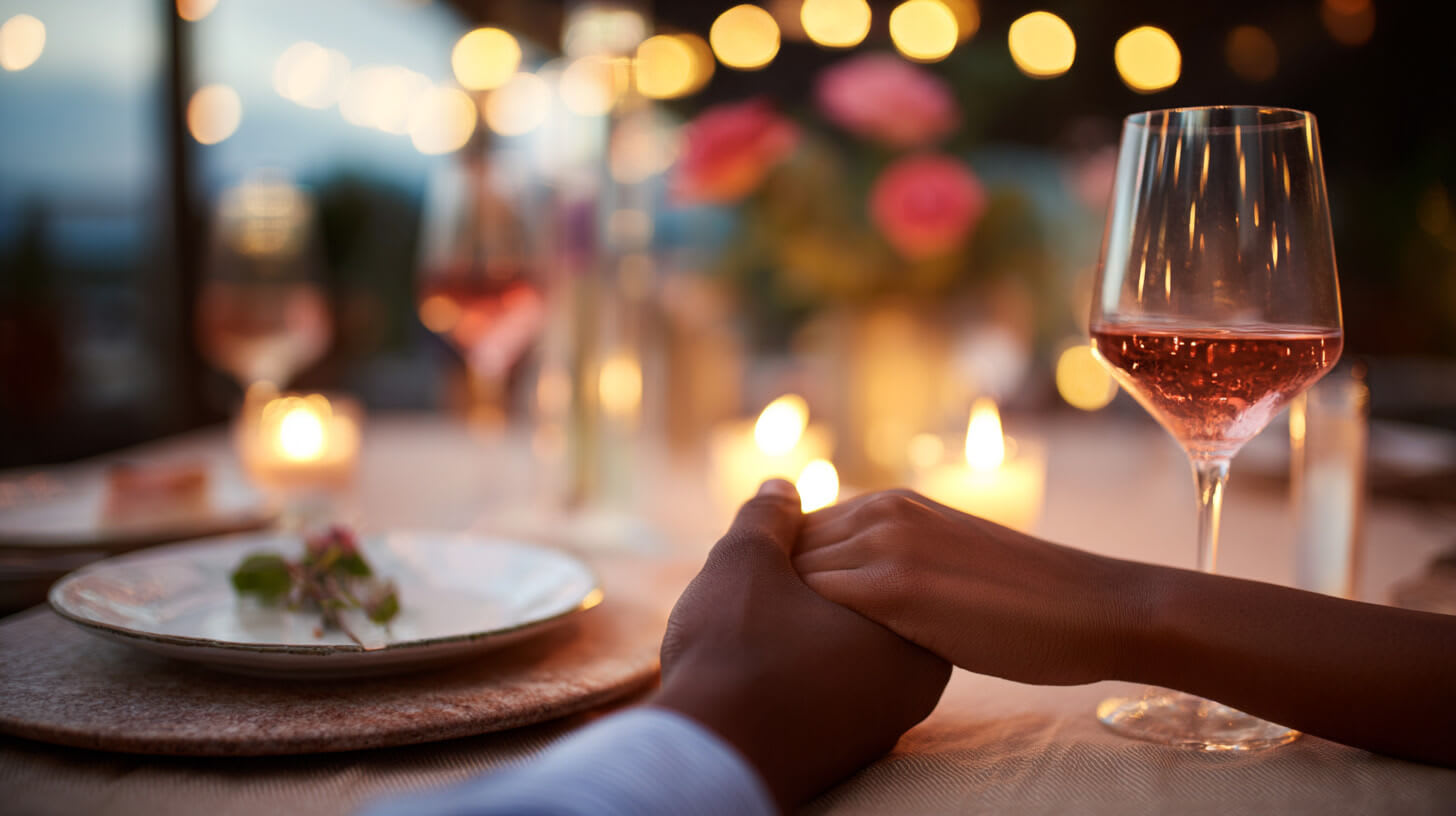As an IDCA-certified relationship coach with over 15 years of experience, I've learned a lot about the unique aspects of Muslim partnerships. Halal dating respects Islamic traditions and focuses on forming bonds with the intention of marriage rather than casual connections.
The Muslim community is diverse, and understanding the nuances of Islamic teachings can help you navigate these rules, especially in online dating. Apps like Zoosk and Muzz are tailored to these principles and help people find partners that honor Muslim traditions.
Our Top Picks for the Best Muslim Dating Sites
Best dating site for Muslims overall
Best for long-lasting relationships among Arabs
Best for meeting Muslim singles from around the world
I'll guide you through 10 rules that adhere to haram dating in the search for your perfect partner.
» Interested in halal dating? Check out these 10 Muslim dating sites and apps for singles.
1. Emphasize Emotional Intimacy Over Physical Intimacy
In Islam, emotional connection is valued more than physical intimacy before marriage. Many Muslim partners prefer to save sexual activities for after marriage, but you can still build a strong emotional bond. Talk with your match about their comfort level with physical affection, like hugging or cuddling, during this phase.
You can deepen your bond through meaningful heart-to-heart discussions about your dreams, values, and daily experiences. Use apps like ArabianDate and eharmony, which provide activities and prompts for deeper understanding and connection. You can also explore shared interests in religious learning, volunteering, and cultural activities.
2. Think in the Long Term
Aligning religious and ethical values is vital for long-term compatibility, especially when the ultimate goal is marriage. Have open and honest discussions about future life goals and religious practices early in the relationship. These conversations should include family planning and long-term career goals.
Discuss practical aspects like sharing household duties and how you celebrate Islamic holidays, observe Ramadan fasting, and engage in community service. These chats can give you insight into each other's daily practice of faith.
3. Get Your Families Involved
According to Islamic scholar Mufti Menk, Muslim parents are often involved in their children's love lives. This stems from the core values of Islam, which emphasize respect for elders, strong family ties, and seeking blessings in life's major decisions.
Here are some tips for approaching family introductions and interactions:
- Seek your parents' blessings to pursue a potential relationship.
- Maintain open and honest communication with your family throughout the process. Share your feelings, concerns, and expectations.
- When introducing families, ensure a warm and respectful atmosphere. Dress modestly, greet elders with humility, and engage in polite conversation.
- Be mindful of your partner's family customs and traditions. Adapt your behavior and communication style accordingly to show respect and understanding.
- Building relationships takes time, so be patient with your families as they become acquainted with one another.
4. Get a Friend's Opinion
In Islam, getting to know each other before marriage is called Ta'aruf. You need a mediator, like a close friend or relative, who helps you understand your potential partner's character, background, and religious practices. This way, both families are involved, but there are still clear boundaries and a safe space for you to talk.
When choosing this third party, pick someone wise, fair, and who understands both families' values. Open and honest communication with your date and their chosen mediator ensures a productive and respectful Ta'aruf experience.
5. Create a Detailed Online Dating Profile
Another aspect of Ta’aruf is providing details about yourself to your prospective partner. Your dating profile is the first impression your potential love interest and their family will get, so authenticity is key. Don't be afraid to showcase your unique personality traits, hobbies, and passions. Also, remember to include a good profile picture.
Sharing your religious observance, preferred practices, and expectations for a spouse is vital. Be clear about your desired level of commitment, be it marriage, a more traditional or modern approach, or simply finding someone who shares your faith and values.
» Follow these tips to make your dating profile stand out.
6. Get To Know Each Other in Person
One key aspect of halal dating is the emphasis on genuine connection through in-person interactions. Ditch the endless texting and video calls and go for coffee dates, museum visits, or volunteering adventures.
Observing body language, engaging in open communication, and sharing your values all contribute to building a deeper understanding and, potentially, a true match. By focusing on face-to-face communication, you may meet "the one" sooner than expected.
7. Take It Slow
While the desire to rush towards commitment is understandable, slowing down can unlock unexpected benefits. Take time to navigate common pressures like societal expectations or family influence. This can help you discover deeper connections beyond your initial attraction.
Here's how you can handle everyday pressures:
- Be honest: Talk openly about your expectations and feelings with your partner. Make sure you both value taking things slow and getting to know each other properly.
- Focus on quality interactions: Prioritize meaningful conversations, shared activities, and time spent with each other's families. These create deeper connections than endless texting or phone calls.
- Set boundaries: It's okay to say no to certain pressures, whether moving too fast physically or committing before you're ready. Remember, saying no shows you have respect for yourself and your partner.
- Trust your intuition: Listen to your gut feeling. If something feels rushed or uncomfortable, you can step back and re-evaluate the situation.
8. Talk Openly About Your Relationship
Transparency and open communication are fundamental to any relationship, and within the Muslim community, they hold even greater significance. Here's why:
- Builds trust and respect: Sharing feelings and intentions with family earns their support and guidance.
- Invites family blessings: Openness in relationships strengthens community bonds and brings family approval.
- Prevents misunderstandings: Clear communication avoids gossip and fosters a supportive environment.
- Strengthens connections: Introducing your partner to family shows commitment and respect, enhancing relationships.
By embracing transparency, you can build a strong foundation for your relationship, honor your values, and foster a supportive community.
9. Consider Getting a Professional Opinion
Seeking professional guidance for your relationship shouldn't shy away from your faith. Online couples therapy and counseling based on Islamic principles can offer insights and support rooted in empathy and respect.
Therapists and counselors can help you explore your values, communication styles, and potential challenges. They provide an unbiased perspective on building a strong, lasting marriage rooted in Islamic values. Some stigma may exist, but prioritizing mental well-being aligns with the importance of holistic care in Islam.
10. Keep Sex off the Table (For Now)
In Halal dating, Islam emphasizes the significance of reserving sexual activity for marriage, considering it a special expression of love in this sacred union. By doing so, you honor the sanctity of marriage and embody self-control, which are important values in Islam.
When discussing physical attraction and setting boundaries, be honest and respectful with your partner. Talk about your feelings and expectations for physical intimacy before marriage. Strengthen your bond by engaging in activities that build your emotional and intellectual connection, like attending religious events or sharing common interests.
Embrace Halal Dating With Respect and Understanding
Respect and understanding should be your guiding lights as you navigate Muslim dating. Embrace your partner's cultural and religious values by learning their traditions and honoring their boundaries. Discuss your expectations, goals, and any potential differences through open communication.
While these tips resonate with Islamic principles, remember that haram dating embraces diversity and individual interpretations. Whether you're Muslim or not, taking your time, involving family, and prioritizing long-term compatibility holds universal value.
» Ready for a Muslim love story with depth? Create a profile on EliteSingles today.






